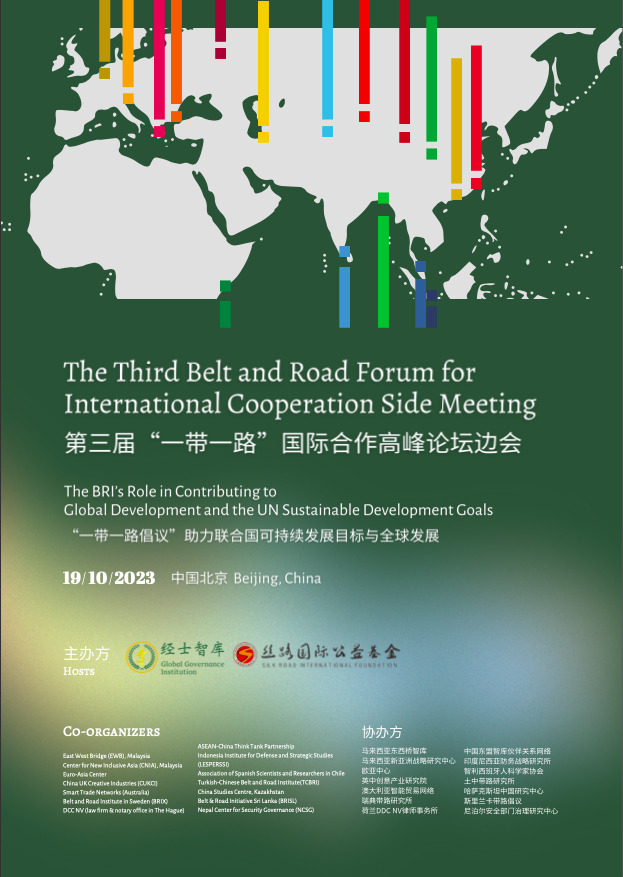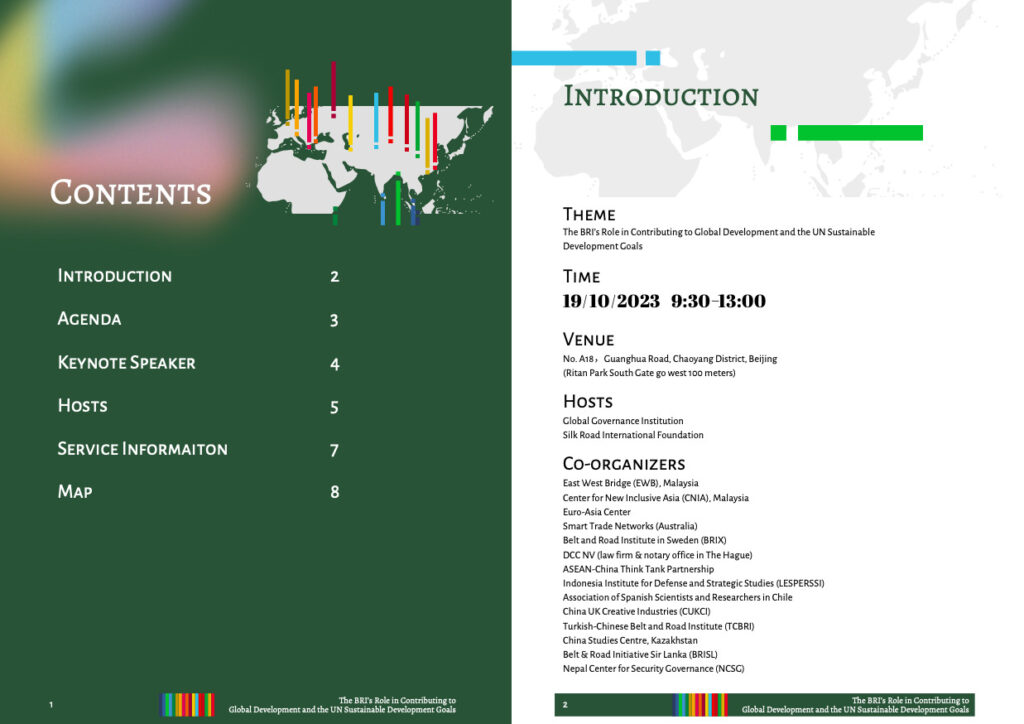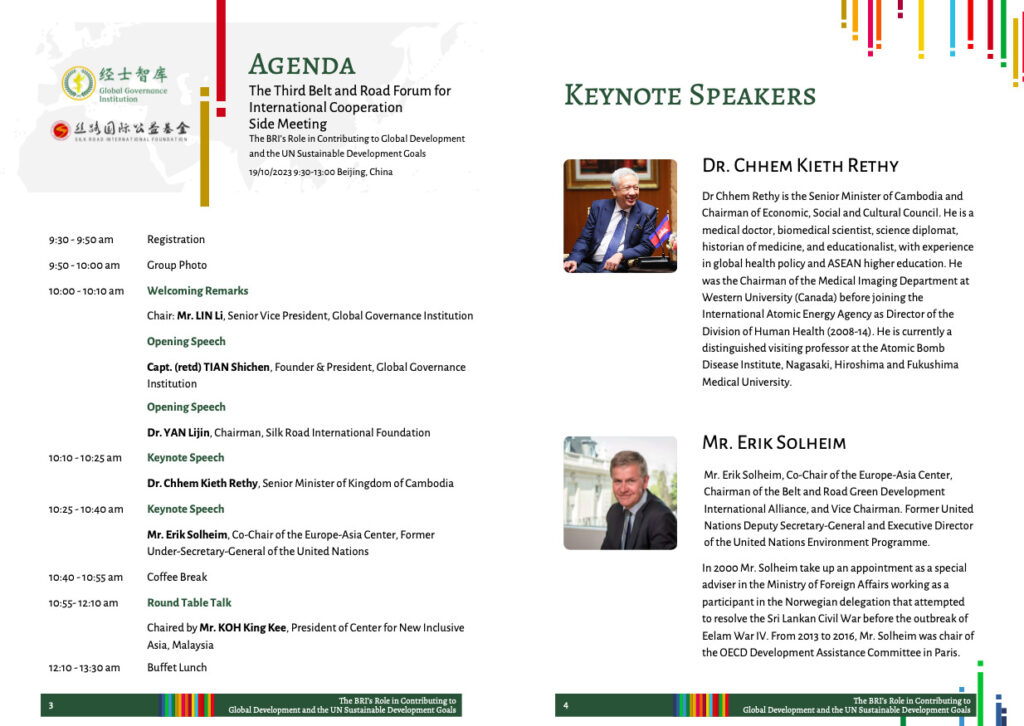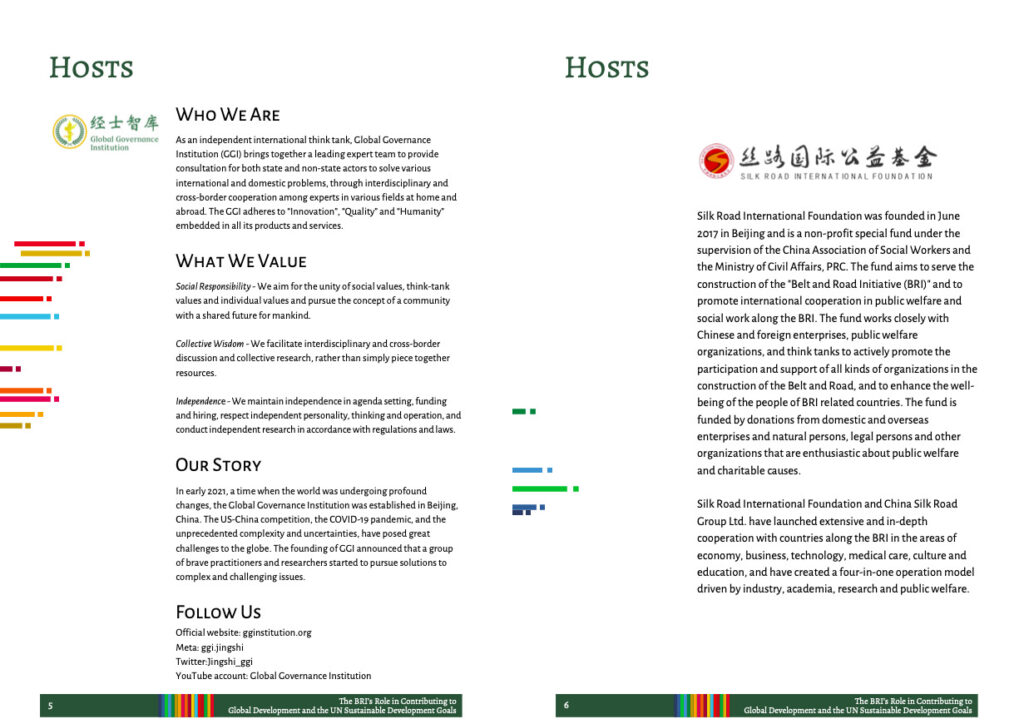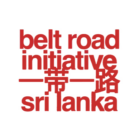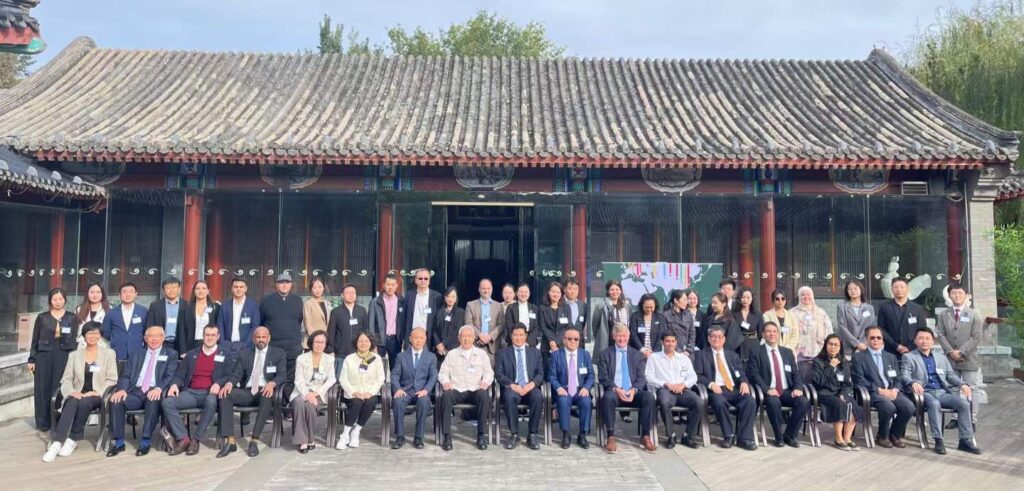BRISL Co-Organize BRI's Green Vision for Sustainable Prosperity in the sidelines of the 3rd BRI Summit in Beijing.
BRISL, a prominent organization within the Belt and Road Initiative (BRI), co-organized a major event during the Third Belt & Road Forum for International Cooperation in Beijing. The event, titled “The BRI Role in Contributing to Global Development and the UN Sustainable Development Goals,” brought together international organizations, co-organizers, and distinguished keynote speakers. Yasiru Ranaraja, Director of BRISL, addressed the event, highlighting issues related to the Hambantota Port debt and the notable success story of the CICT terminal at Colombo Port. This terminal achieved impressive results in terms of environmental sustainability, including a substantial reduction in CO2 emissions and a transition to solar energy. The collaborative event underscored the BRI’s contribution to global development and alignment with the UN’s Sustainable Development Goals, emphasizing the coexistence of economic prosperity and environmental protection
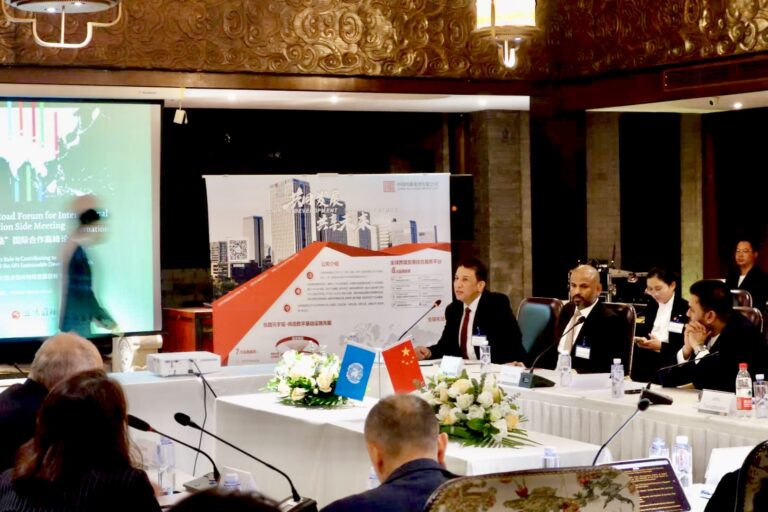
BRISL (Belt & Road Initiative Sri Lanka) played a pivotal role in co-organizing a significant event titled “The BRI Role in Contributing to Global Development and the UN Sustainable Development Goals.” The event, held as a side event during the Third Belt & Road Forum for International Cooperation in Beijing, brought together a diverse array of international organizations, co-organizers, and distinguished keynote speakers. The event’s aim was to shed light on the substantial impact of the Belt and Road Initiative (BRI) on global development, with a particular focus on how it aligns with the United Nations’ Sustainable Development Goals (SDGs).
Yasiru Ranaraja, Director of BRISL, took center stage during the event, emphasizing a critical issue surrounding the Hambantota Port debt. He supported his arguments by referencing the work of Dr. Deborah Brautigam and the collaboration of Sri Lankan researchers Thilina Panduwawala and Umesh Moramudali. Ranaraja further spotlighted a notable success story within the BRI—the CICT terminal of Colombo Port. This terminal witnessed a remarkable increase in cargo volumes over the years, all while championing environmental sustainability. The introduction of electric cranes at the terminal led to a remarkable 45% reduction in CO2 emissions and an astonishing 95% decrease in diesel consumption. Furthermore, more than 80% of the terminal’s electricity is derived from cutting-edge solar technology. This case exemplifies the harmonious coexistence of commercial prosperity and environmental protection, marking the BRI’s commitment to addressing environmental concerns while advancing global economic development.
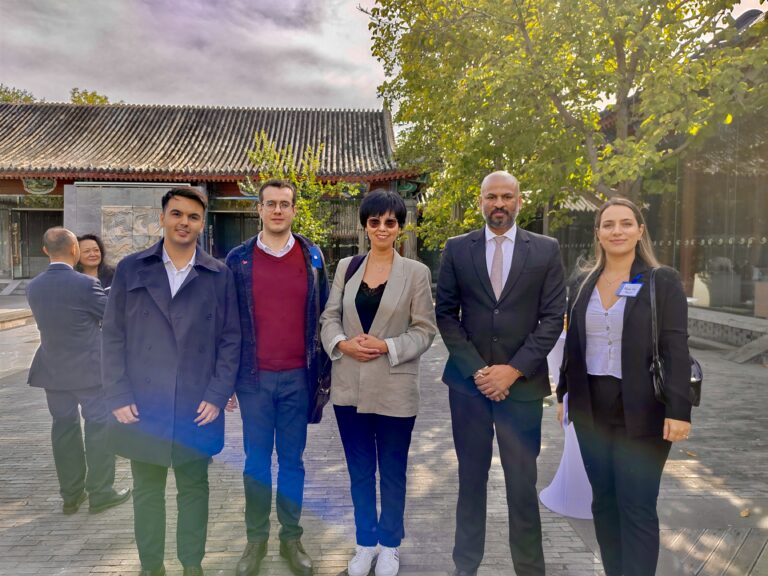
The collaborative event included an impressive lineup of co-organizers, reflecting the global significance of the topic. These co-organizers encompassed a diverse range of organizations from various nations, including East West Bridge (EWB) and the Center for New Inclusive Asia (CNIA) from Malaysia, Euro-Asia Center, Smart Trade Networks from Australia, Belt and Road Institute in Sweden (BRIX), DCC NV (a law firm & notary office in The Hague), ASEAN-China Think Tank Partnership, Indonesia Institute for Defense and Strategic Studies (LESPERSSI), Association of Spanish Scientists and Researchers in Chile, China UK Creative Industries (CUKCI), Turkish-Chinese Belt and Road Institute (TCBRI), China Studies Centre in Kazakhstan, Nepal Center for Security Governance (NCSG), and the hosts of the event, the Global Governance Institution and the Silk Road International Foundation.
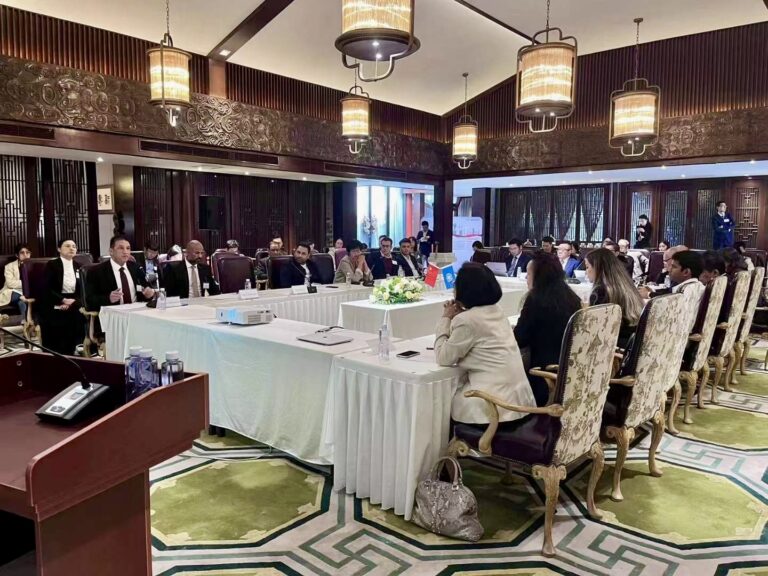
The event featured a meticulously planned agenda, including registration, a group photo session, welcoming remarks, opening speeches by influential figures such as Capt. (retd) TIAN Shichen, Founder & President of the Global Governance Institution, and Dr. YAN Lijin, Chairman of the Silk Road International Foundation. Keynote speeches were delivered by renowned experts, including Dr. Chhem Kieth Rethy, the Senior Minister of the Kingdom of Cambodia, known for his extensive expertise in global health policy and higher education, and Mr. Erik Solheim, Co-Chair of the Europe-Asia Center, former United Nations Deputy Secretary-General, and Chairman of the Belt and Road Green Development International Alliance. Mr. Solheim’s previous roles as the Chair of the OECD Development Assistance Committee and his involvement in the Norwegian delegation during the Sri Lankan Civil War highlighted the wealth of experience he brought to the event.
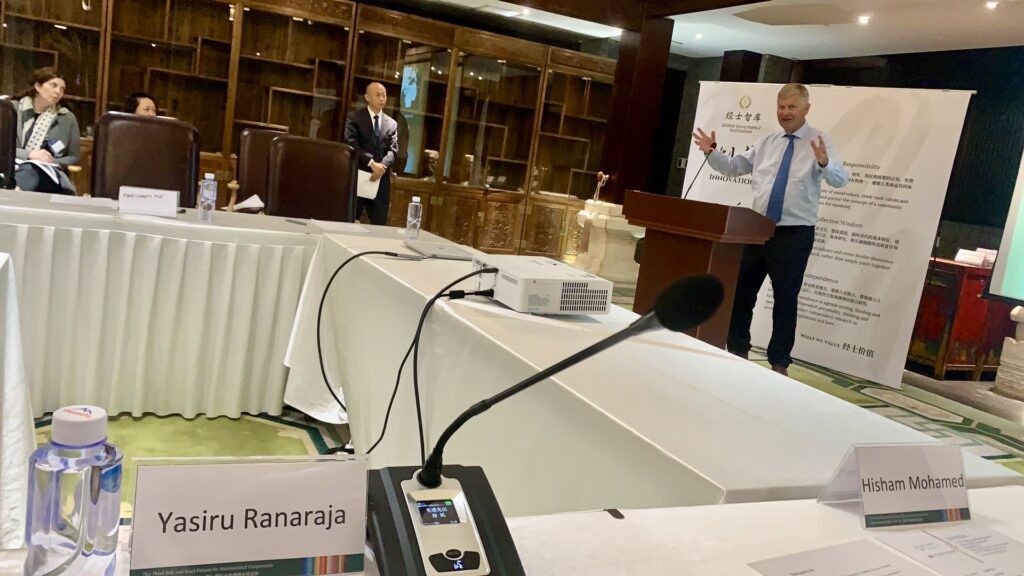
In summary, this collaborative event, driven by BRISL and numerous influential co-organizers, showcased the BRI’s significant contributions to global development and its alignment with the UN’s Sustainable Development Goals. The event demonstrated how economic progress and environmental preservation can work together in harmony, making a compelling case for the BRI’s role in addressing global challenges while fostering economic growth
